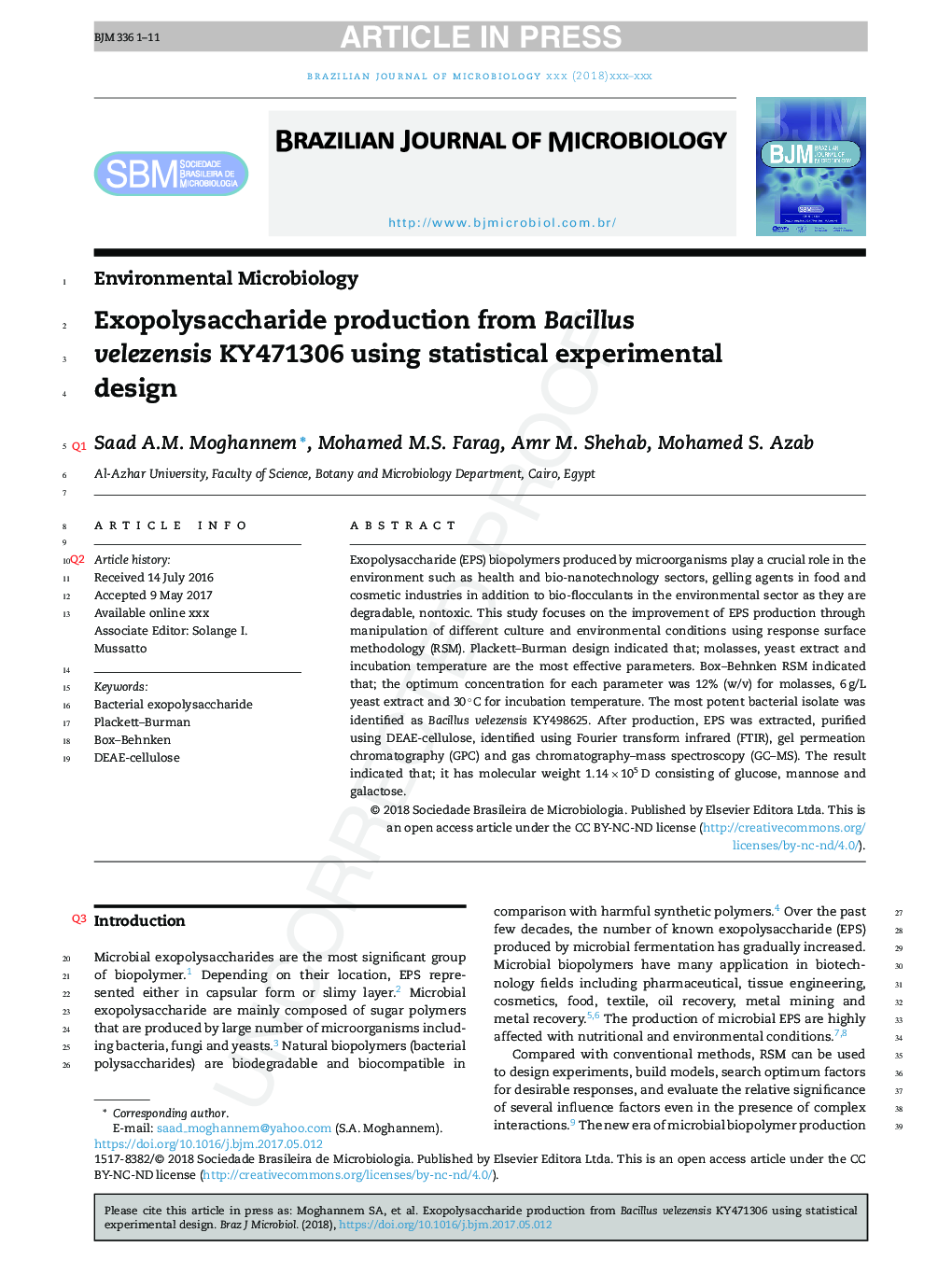| Article ID | Journal | Published Year | Pages | File Type |
|---|---|---|---|---|
| 8842465 | Brazilian Journal of Microbiology | 2018 | 11 Pages |
Abstract
Exopolysaccharide (EPS) biopolymers produced by microorganisms play a crucial role in the environment such as health and bio-nanotechnology sectors, gelling agents in food and cosmetic industries in addition to bio-flocculants in the environmental sector as they are degradable, nontoxic. This study focuses on the improvement of EPS production through manipulation of different culture and environmental conditions using response surface methodology (RSM). Plackett-Burman design indicated that; molasses, yeast extract and incubation temperature are the most effective parameters. Box-Behnken RSM indicated that; the optimum concentration for each parameter was 12% (w/v) for molasses, 6 g/L yeast extract and 30 °C for incubation temperature. The most potent bacterial isolate was identified as Bacillus velezensis KY498625. After production, EPS was extracted, purified using DEAE-cellulose, identified using Fourier transform infrared (FTIR), gel permeation chromatography (GPC) and gas chromatography-mass spectroscopy (GC-MS). The result indicated that; it has molecular weight 1.14 Ã 105 D consisting of glucose, mannose and galactose.
Related Topics
Life Sciences
Immunology and Microbiology
Applied Microbiology and Biotechnology
Authors
Saad A.M. Moghannem, Mohamed M.S. Farag, Amr M. Shehab, Mohamed S. Azab,
